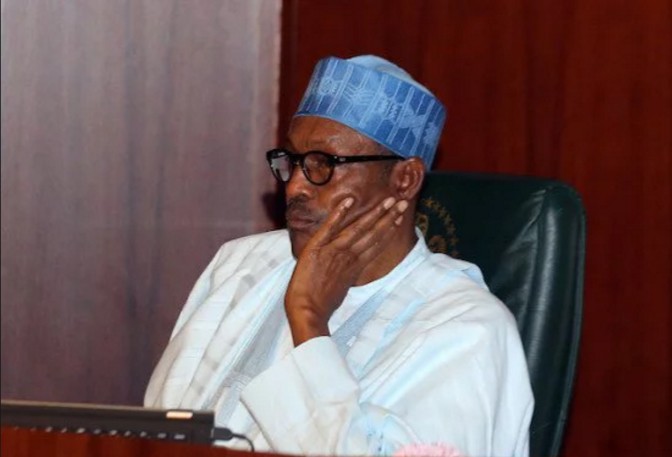Fuel Crisis Looms as Higher Oil Price Forces Marketers Off Import, Buhari Reintroduces Subsidy Via Backdoor
THE foreign exchange scarcity and recent appreciation of the price of crude oil in the international market are threatening smooth supply of petrol in the country, Daily Trust has gathered.
Daily Trust gathered that for over three months now marketers have not been importing the product into the country due to the tricky nature of the situation.
“Right now government is not paying subsidy, even with the lower exchange rate of 285/$1, the increase in the price of crude oil has shot the landing cost of the refined product by about 40 percent,”, a marketer who asked for anonymity told Daily Trust yesterday.
“When the partial deregulation was announced last year the price of Brent crude oil was averagely at $45/ barrel but before the year ran out the crude price jumped to $56/barrel, the situation that pushed the price per metric tonne of the Premium Motor Spirit (PMS) to rise from $400 to about $560 by the refiners”, the marketer said.

“Also, the gap between the current official exchange rate of N305/$1 and that of the petroleum import rate of N285/$1 at the liberalisation period left the marketers with the exchange rate differential of about $20 between the two rates.”
The partial liberalisation announced by the federal government in May 2016, had technically ended the subsidy regime, but the marketers say unless there is adjustment of price they can’t compete in the market.
With the country’s refinery operating in fits and start, Nigeria relies largely on the importation of refined products to meet its local needs of about 30 to 35 million litres per day.
Meanwhile, the Nigerian National Petroleum Corporation (NNPC) yesterday said it is targeting to make the country self-sufficient in product refining by 2019.
The Group Managing Director of the NNPC, Dr Mikanti Baru told the officials of Media Trust Limited yesterday that his management have ordered for the complete audit of the four refineries and talks are at top gear to bring in original equipment manufacturers to the refineries for the turnaround maintenance.
“We are pushing together various programs to ensure that we achieve at least 60 percent local refining this year, there are changing procedures a little bit, we are focusing on the process licensors to come and audit the process units of our refineries and with designers of the refineries which some of them have started coming in..” we hope if we do these systematically, geared towards 80 percent by the end of 2018 and with other efforts from other refineries that are coming on board we want to quit importation”.
The NNPC boss however pointed out that at the moment, the corporation is almost the sole importer of petroleum products unlike the situation in September 2016 when private sector companies were importing up to 50% of Nigeria’s consumption.
Industry analysts who spoke to Daily Trust said the country is once again sliding into what one of them called a pseudo subsidy situation with the only difference that it is now government to government with NNPC being forced to ask for the payment of the differential between the landing cost of refined products especially PMS which is pegged at 145 Naira per litre.
The analysts went on to say that having been forced to nearly double the price of fuel mid 2016, it is now politically difficult for the government to consider another hike even when other oil rich countries like Saudi Arabia are going in that direction.
Petrol price would have gone up again since last year (Q3 or Q4), but Buhari did not okay it despite so much pressure since it will aggravate the present hardship of Nigerians.
Now, only NNPC is importing and there is a report that the landing cost is about N213/litre, but the official selling price remains @ N145/litre.
That means subsidy is now done indirectly via the back door.






